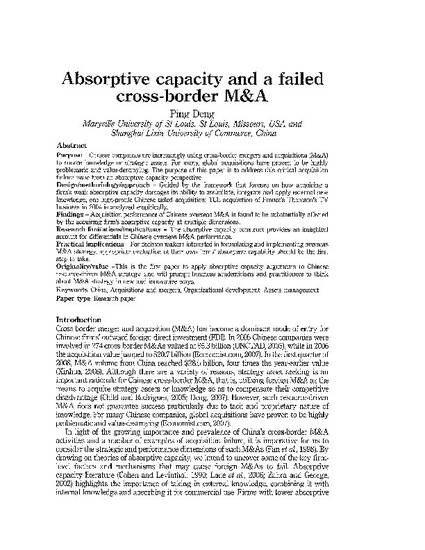
- Global/International Business,
- Strategic Management
Purpose – Chinese companies are increasingly using cross-border mergers and acquisitions (M&A) to source knowledge or strategic assets. For many, global acquisitions have proven to be highly problematic and value-destroying. The purpose of this paper is to address this critical acquisition failure issue from an absorptive capacity perspective. Design/methodology/approach – Guided by the framework that focuses on how acquiring a firm's weak absorptive capacity damages its ability to assimilate, integrate and apply external new knowledge, one high-profile Chinese failed acquisition: TCL acquisition of France's Thomson's TV business in 2004 is analyzed empirically. Findings – Acquisition performance of Chinese overseas M&A is found to be substantially affected by the acquiring firm's absorptive capacity at multiple dimensions. Research limitations/implications – The absorptive capacity construct provides an insightful account for differentials in Chinese overseas M&A performance. Practical implications – For decision makers interested in formulating and implementing overseas M&A strategy, appropriate evaluation of their own firms’ absorptive capability should be the first step to take. Originality/value –This is the first paper to apply absorptive capacity arguments to Chinese resource-driven M&A strategy, and will prompt business academicians and practitioners to think about M&A strategy in new and innovative ways.
